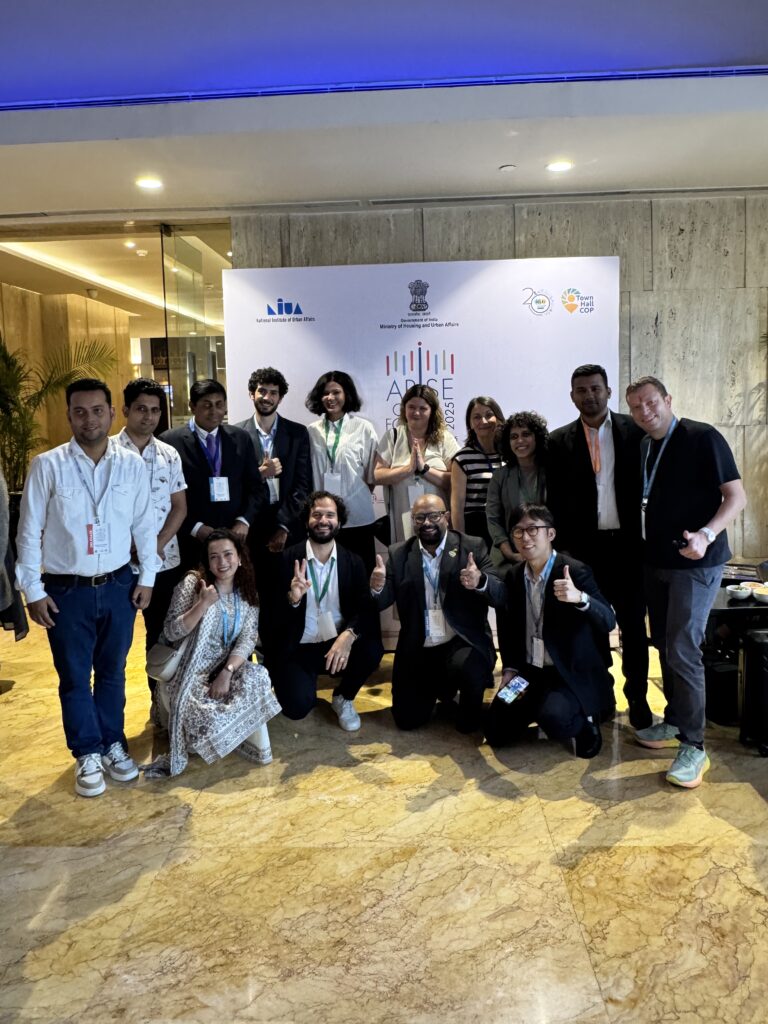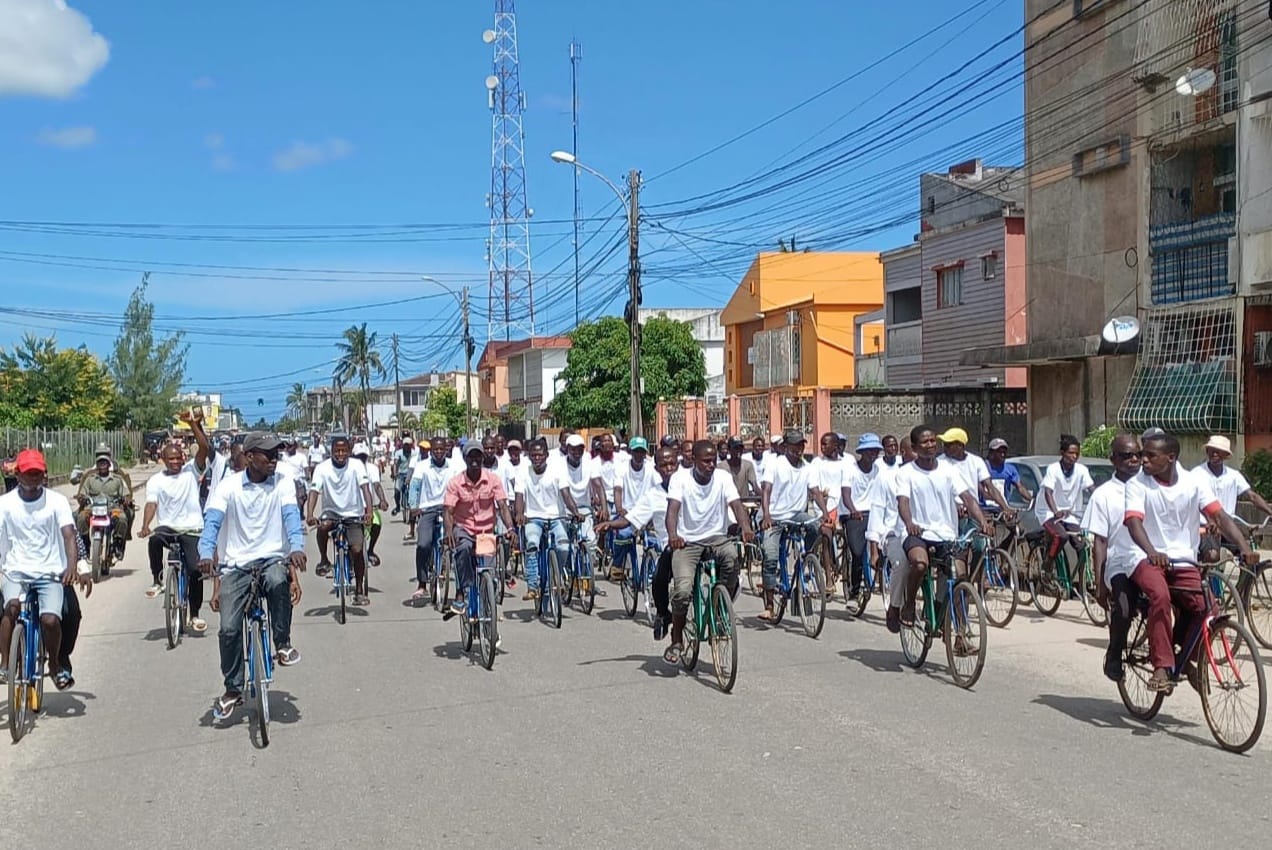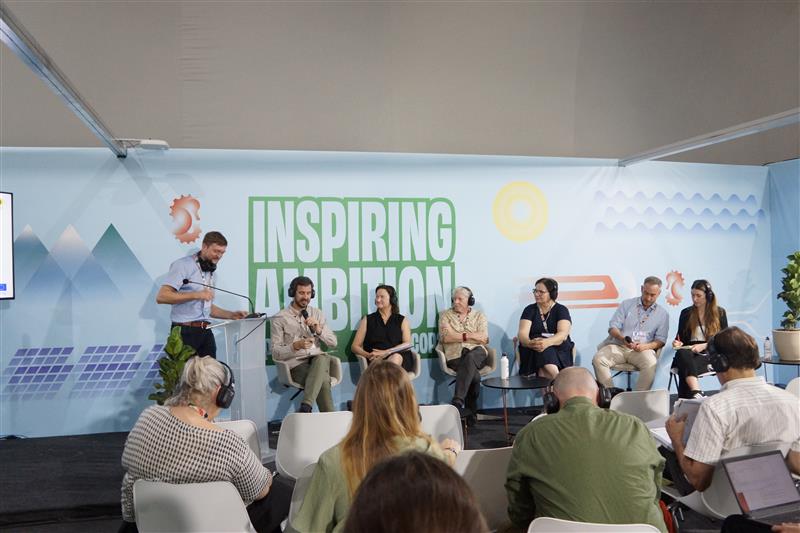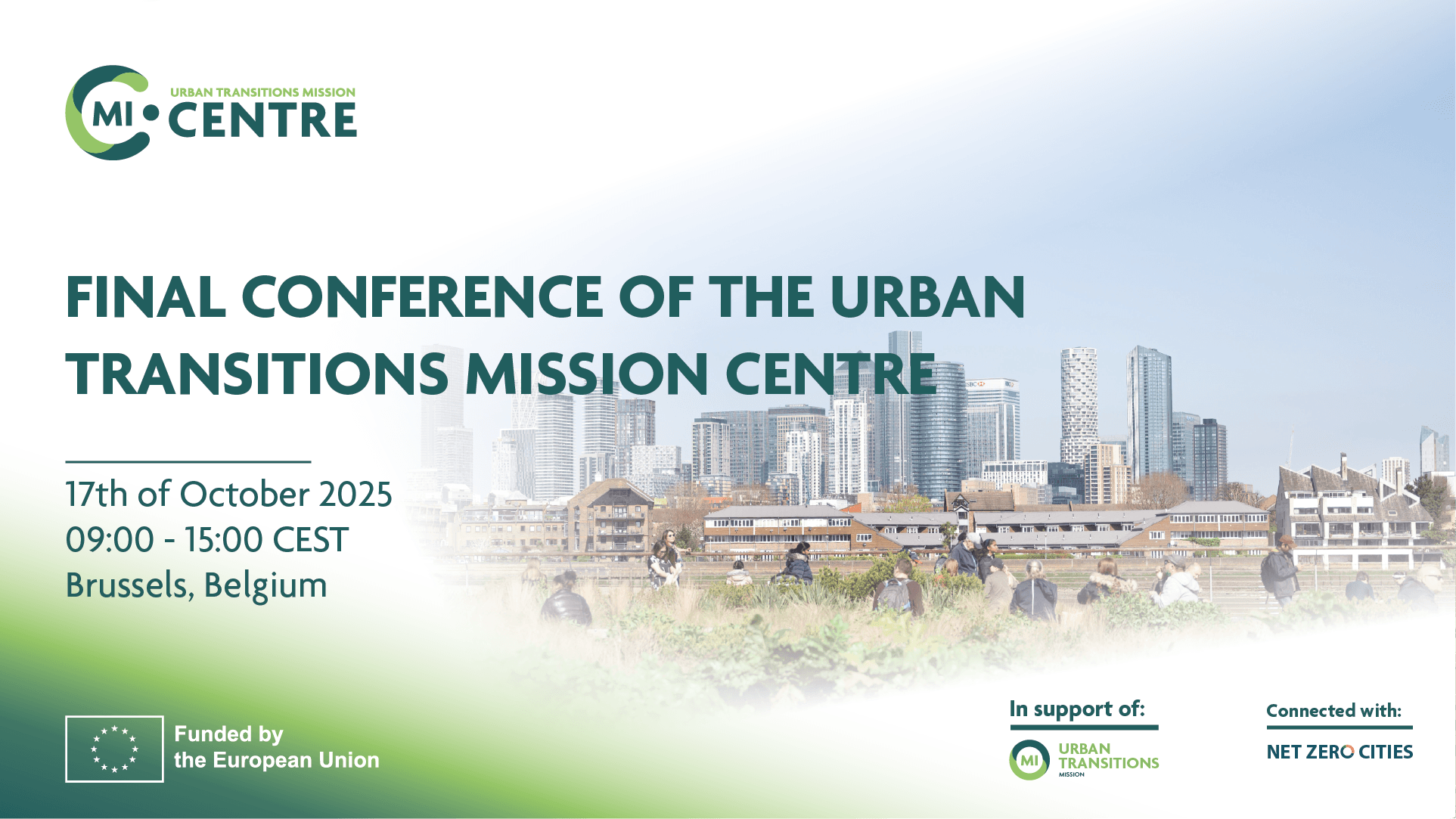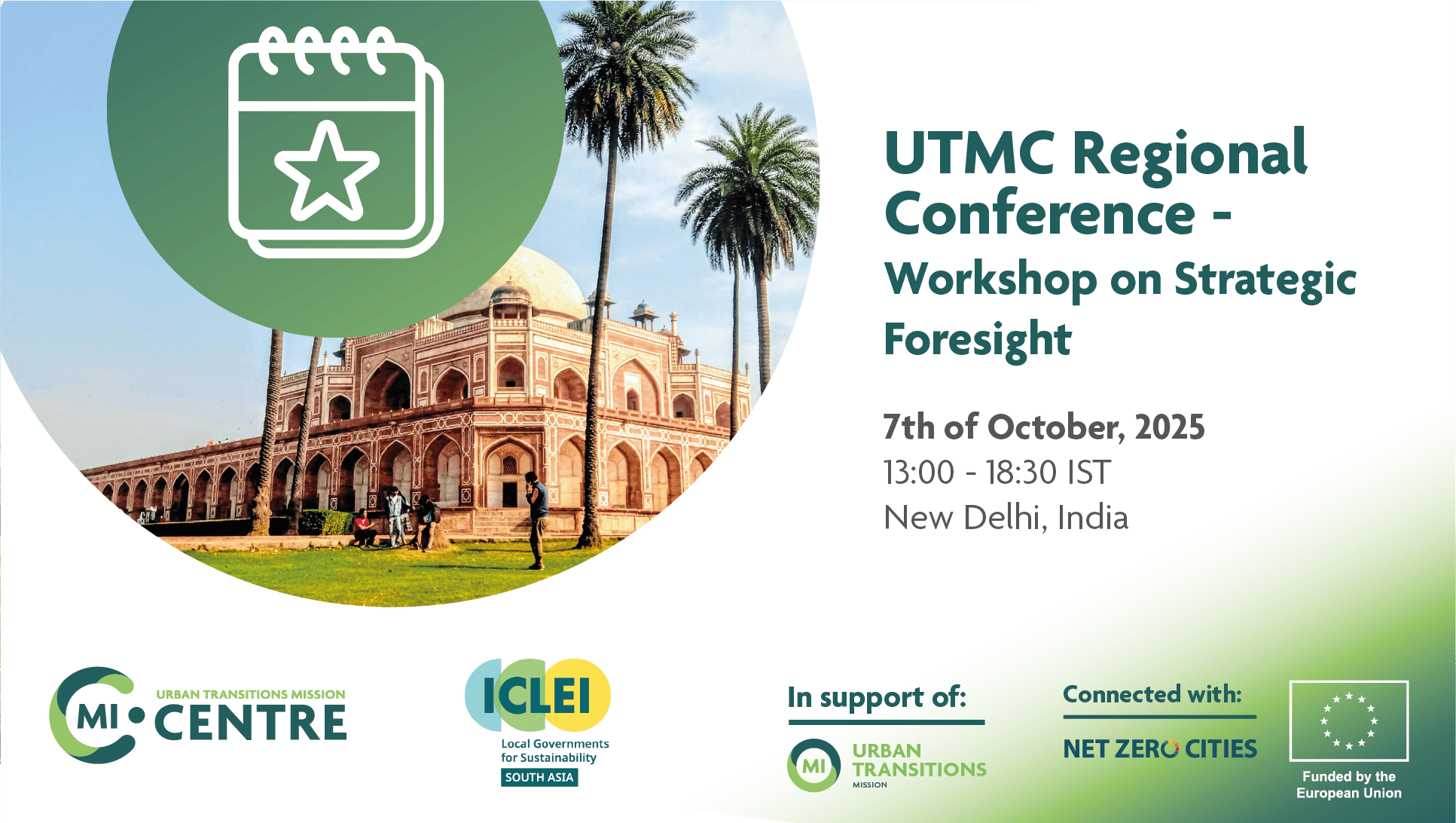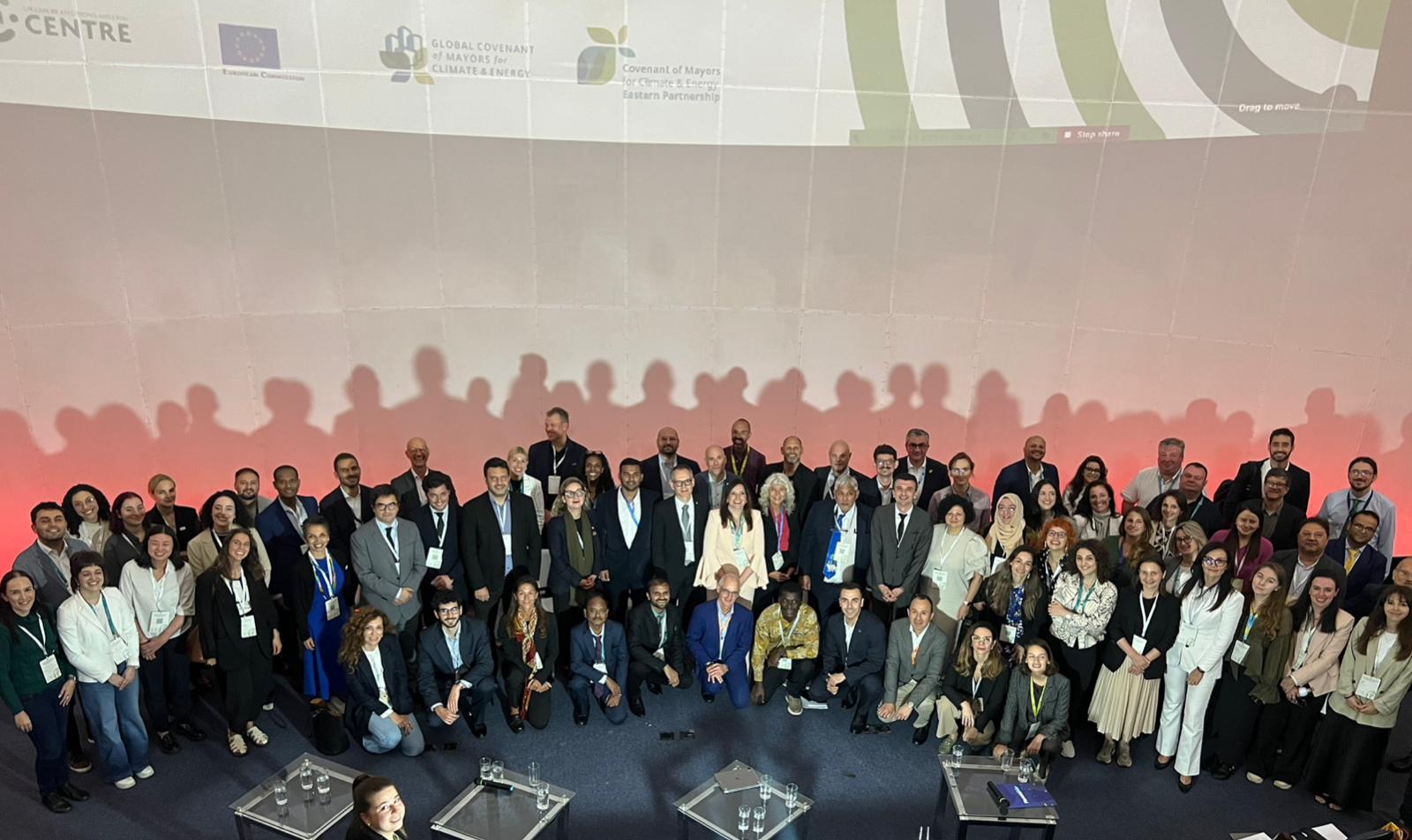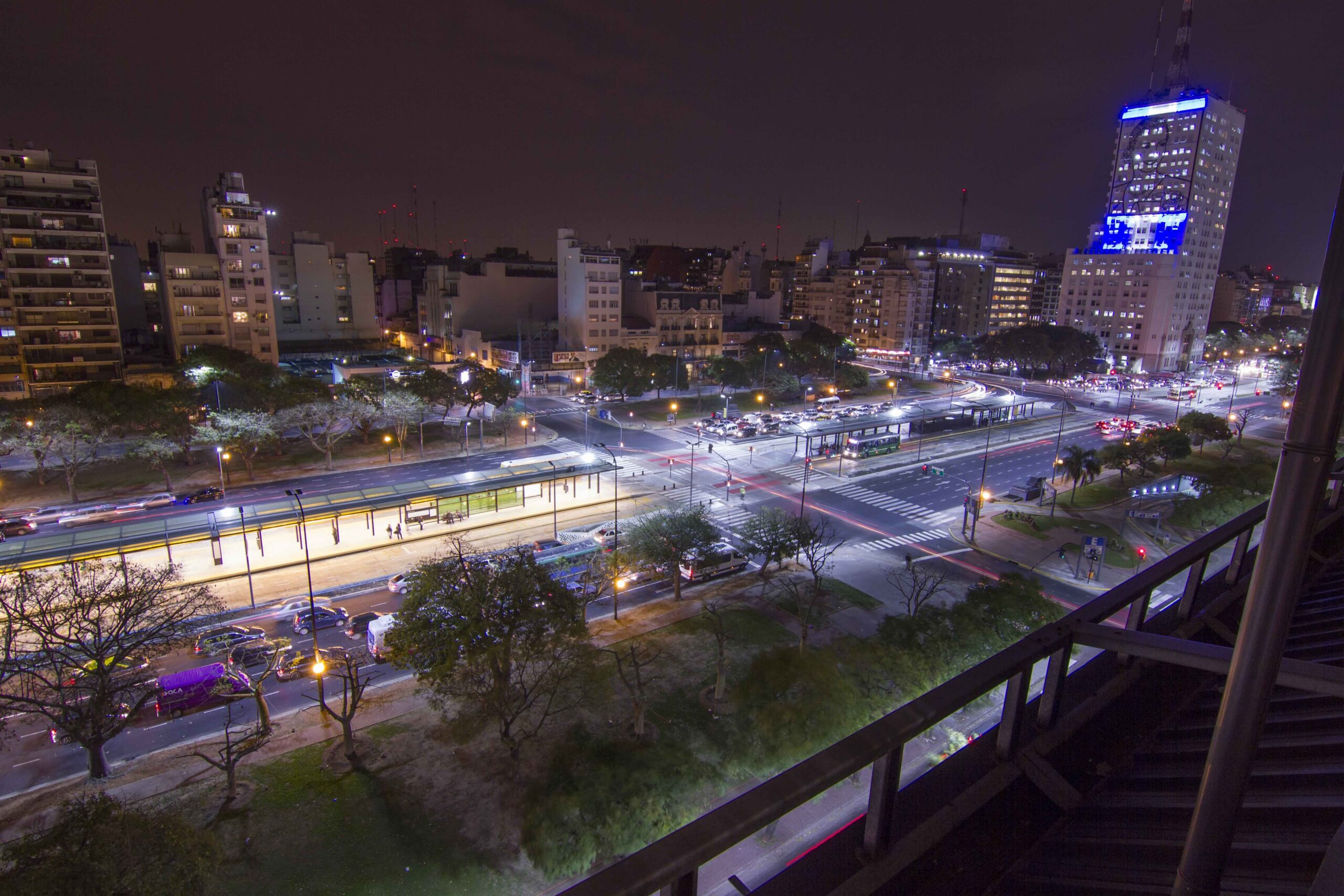The Urban Transitions Mission Centre (UTMC) deepened its engagement in Southern Asia during the ARISE Cities Forum, held in New Delhi from 7 to 9 October 2024. Hosted by ICLEI South Asia in partnership with the National Institute of Urban Affairs, the Forum provided a regional platform for advancing dialogue on disaster risk reduction, climate resilience and long term urban transformation.
For the Urban Transitions Mission, Southern Asia is a priority region shaped by rapid demographic growth, climate vulnerability and governance complexity. These factors create urgent demand for integrated urban planning, anticipatory governance and mission oriented approaches. UTMC’s three day engagement aimed to support cities in navigating complex transition pathways and introduce practical tools and methodologies that can strengthen climate neutral and resilient urban development.
Strengthening Partnerships for Regional Impact
In preparation for ARISE, UTMC worked closely with ICLEI South Asia and CDRI to design a coordinated programme aligned with the Forum’s thematic direction. This collaboration ensured that UTMC provided more than technical content. It helped shape the narrative connecting disaster readiness, climate neutrality, foresight, finance and digital transformation, and positioned the Mission within a broader ecosystem of partners working across resilience and innovation.
Throughout the Forum, UTMC highlighted the role of structured knowledge, foresight and partnership building in supporting cities across Southern Asia as they accelerate climate neutral and resilient urban transitions.
A Multi Day Engagement Supporting Southern Asian Urban Transitions
UTMC’s contribution unfolded over three interconnected days. Each day addressed a specific pillar of mission aligned action: long term foresight, disaster readiness and climate finance, and digitalisation for sustainable energy planning.
Throughout the Forum, UTMC highlighted the role of structured knowledge, foresight and partnership building in supporting cities across Southern Asia as they accelerate climate neutral and resilient urban transitions.
Day 1 – Strategic Foresight and Scenario Exploration for Southern Asian Cities (7 October)
The opening day was dedicated entirely to strategic foresight. The full day workshop brought together representatives from Indian and Southern Asian cities including Ahmedabad, Kochi, Mumbai, Patna, Panaji, Pune, Surat and Varanasi to collectively explore future uncertainties and emerging patterns that could shape their pathways to climate neutrality by 2035. The session was co designed with ICLEI South Asia and CDRI, and facilitated by Epaminondas Christophilopoulos, the UNESCO Chair on Futures Research.
Understanding Megatrends Shaping the Future of Indian Cities
The first part of the workshop focused on eight global megatrends that are already influencing cities. Participants assessed their relevance and potential impacts on Indian urban systems. These included climate change, resource scarcity, demographic imbalances, urbanisation, exponential technological growth, evolving labour markets, societal polarisation and changing governance systems.
Participants agreed that four megatrends will dominate the next decade in Southern Asia:
- Escalating climate impacts including heat stress, water scarcity, flooding and air pollution
- Increasing resource scarcity affecting food, water, energy and land
- Accelerating technological change
- Rapid urbanisation and rising consumption
These megatrends interact across all sectors, creating both structural vulnerabilities and opportunities for leapfrogging.
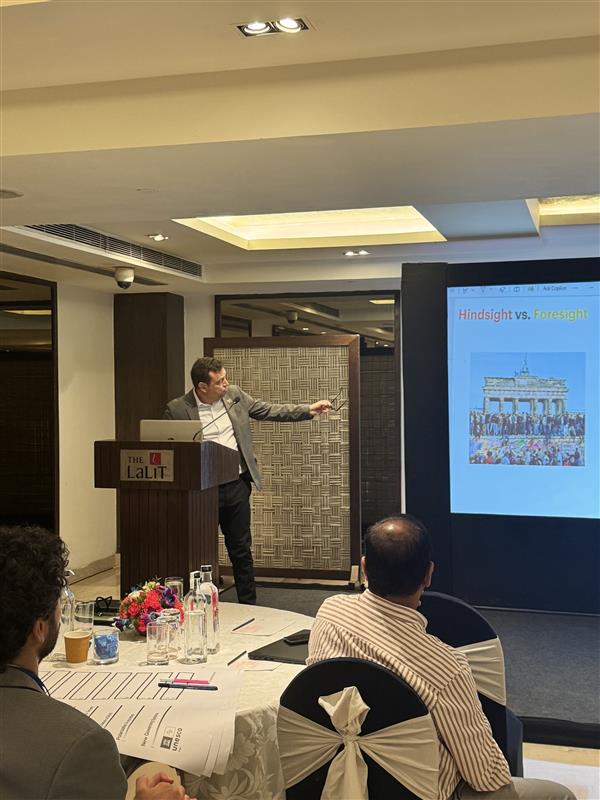
Scanning Emerging Trends and Weak Signals
Cities then examined additional trends and weak signals that may become decisive by 2035. These included:
- Rising civic activism and environmental awareness
- Growing youth engagement
- Expansion of digital and fintech ecosystems
- Increasing polarisation and misinformation
- Resurgence of traditional knowledge systems
- Localised sustainability efforts such as rainwater harvesting and community greening
Participants reflected that weak signals often reveal early shifts in public values, governance cultures and technological adoption that can significantly affect climate planning in the long run.
Exploring Black Swans and Systemic Vulnerabilities
The foresight process also addressed black swan events. Participants identified major shocks with the potential to reshape cities. These included extreme heatwaves, monsoon failure, mass displacement, AI failures, cyber conflict, pandemics and abrupt economic shifts.
The discussion drew attention to the multi dimensional nature of urban vulnerability. Cities stressed that long term planning must account for both gradual and disruptive change.
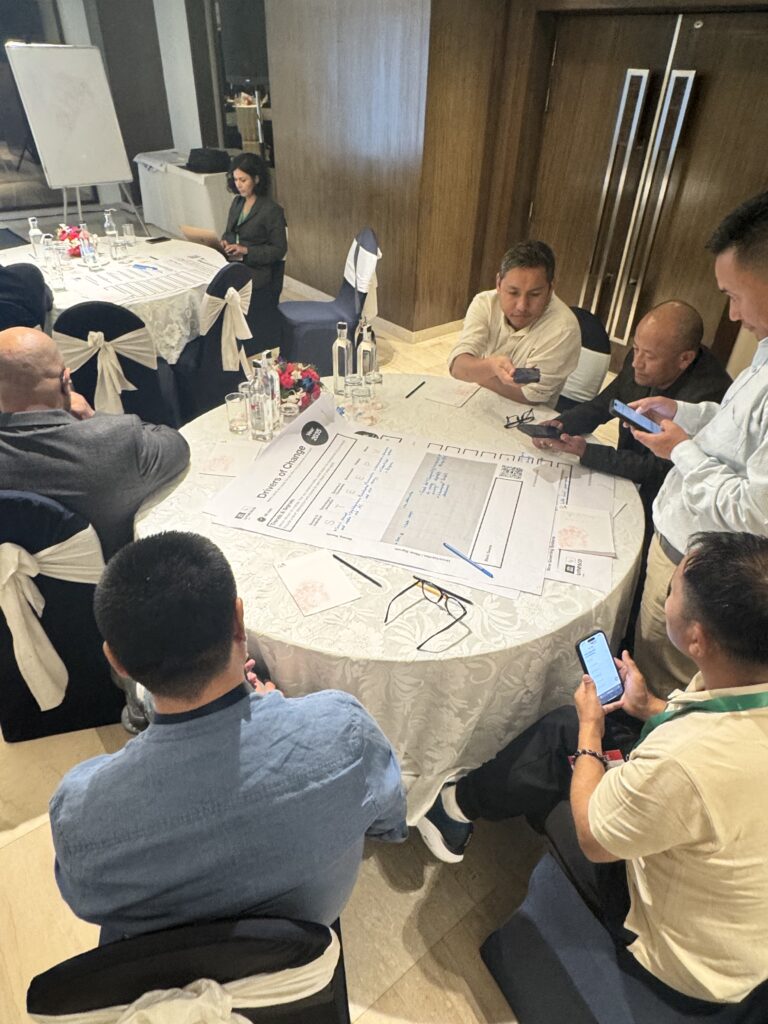
Co Creating Alternative Futures Through Scenarios
Using megatrends, uncertainties and weak signals, participants developed four alternative futures for a fictional composite city called Indraprastha. The scenarios were shaped by two critical uncertainties:
- The pace of technology adoption
- The level of global collaboration
The four resulting scenarios explored India’s urban future under very different global conditions. They revealed several insights:
- Technology alone cannot guarantee climate progress
- Social trust and governance capacity shape outcomes more than innovation levels
- Collaborative environments create better conditions for climate neutrality
- Fragmentation, polarisation and resource competition slow down transitions
- Low tech futures can still support resilience when communities are strong
Identifying Priority Strategies Across All Futures
In the final segment, participants identified strategies that remain relevant across diverse scenarios. These included:
- Mobilising climate finance through carbon credits, CSR funds and PPPs
- Strengthening circular economy systems and recycling
- Improving adaptive land use planning
- Developing citizen based monitoring systems
- Investing in skills for green jobs
- Enhancing transparency and international cooperation
The strategic foresight session provided Southern Asian cities with an opportunity to reflect on long term risks and opportunities and to co create shared futures that can guide climate neutral and resilient planning.
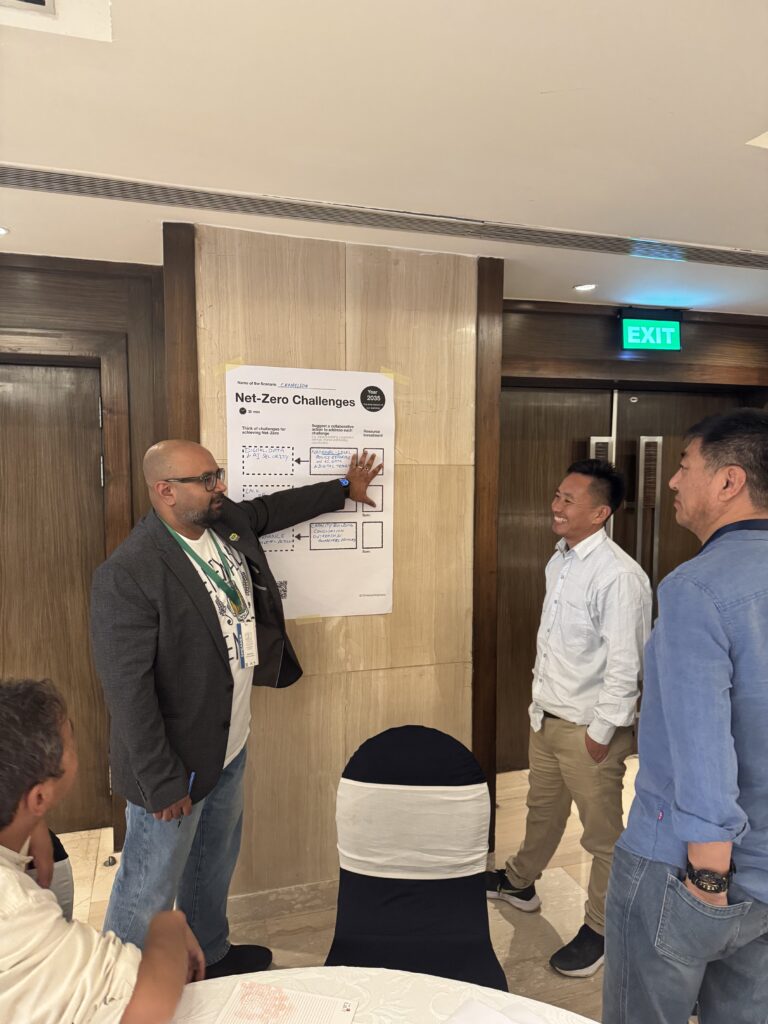
Day 2 – Strengthening Disaster Readiness and Climate Neutral Implementation (8 October)
Supporting Disaster Ready Cities
The first session addressed operational preparedness. UTMC presented the Knowledge Repository, which provides structured information on disaster risk frameworks, early warning mechanisms, climate adaptation plans and multi level coordination. Cities discussed the need for better access to actionable knowledge, improved data and strengthened institutional mandates to support integrated disaster risk governance.
Advancing Net Zero Implementation and Access to Climate Finance
The second session focused on the transition from planning to implementation. UTMC introduced the Funding and Financing Helpdesk, which guides cities in identifying funding sources, preparing project pipelines and engaging with climate finance institutions. Cities underlined challenges such as project bankability, fragmented data, limited coordination and insufficient capacity to navigate complex funding ecosystems.
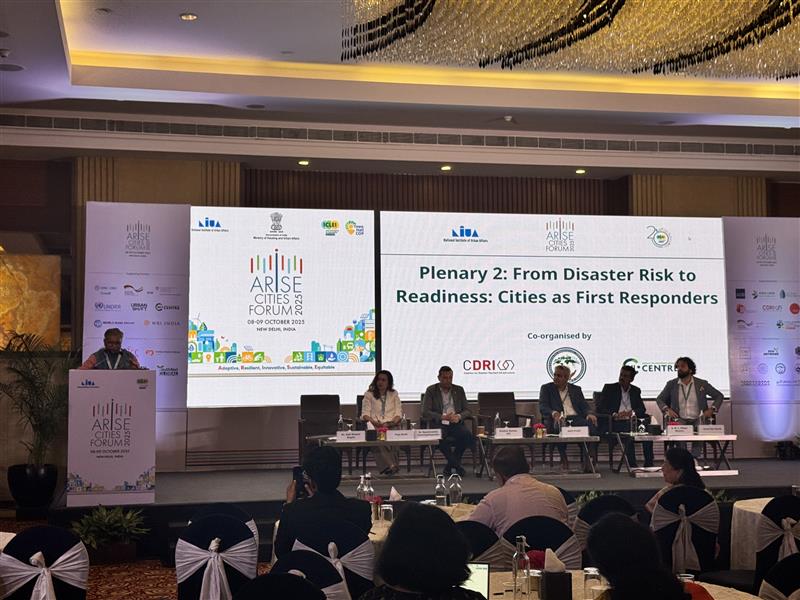
Day 3 – Digital Solutions for Sustainable Energy Planning (9 October)
The third day explored how digitalisation can support sustainable energy transitions. Cities and partners discussed the use of digital tools for emissions tracking, energy modelling, renewable deployment, consumption analysis and long term planning. The conversation highlighted the importance of interoperable data systems, capacity building and governance models that support data driven decision making in Southern Asian cities.
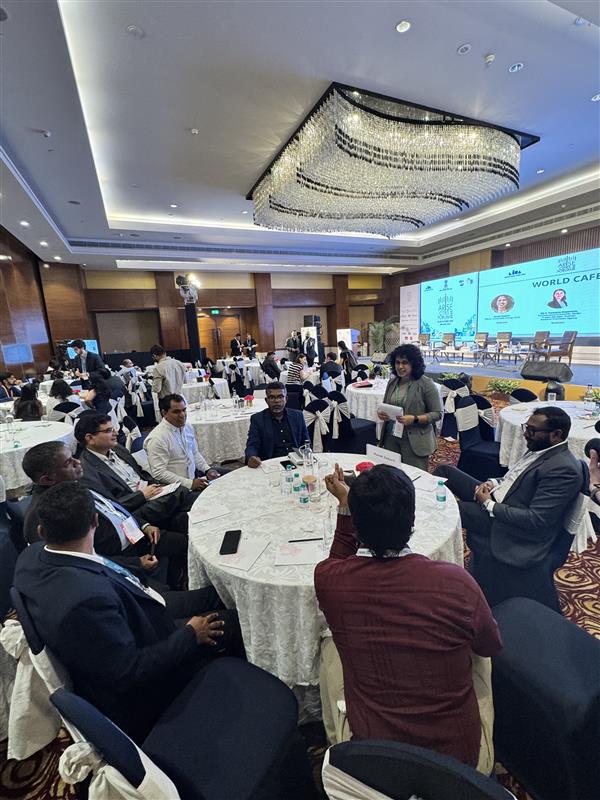
Key Insights Emerging Across the Three Days
Participants identified a set of cross cutting insights:
- Resilience must be integrated into all aspects of urban planning
- Long term thinking and anticipatory governance are essential
- Digitalisation is a major enabler but data quality and institutional readiness remain challenges
- Social trust and civic participation are central to successful transitions
- Access to financing is a persistent barrier in the region
- Cross sector and multi level coordination significantly improve climate outcomes
Looking Ahead
The ARISE Cities Forum demonstrated strong regional interest in mission oriented approaches and practical tools that support climate neutral and resilient cities. UTMC’s engagement in New Delhi highlighted the role of foresight, collaboration and capacity building in supporting long term urban transitions in Southern Asia.
